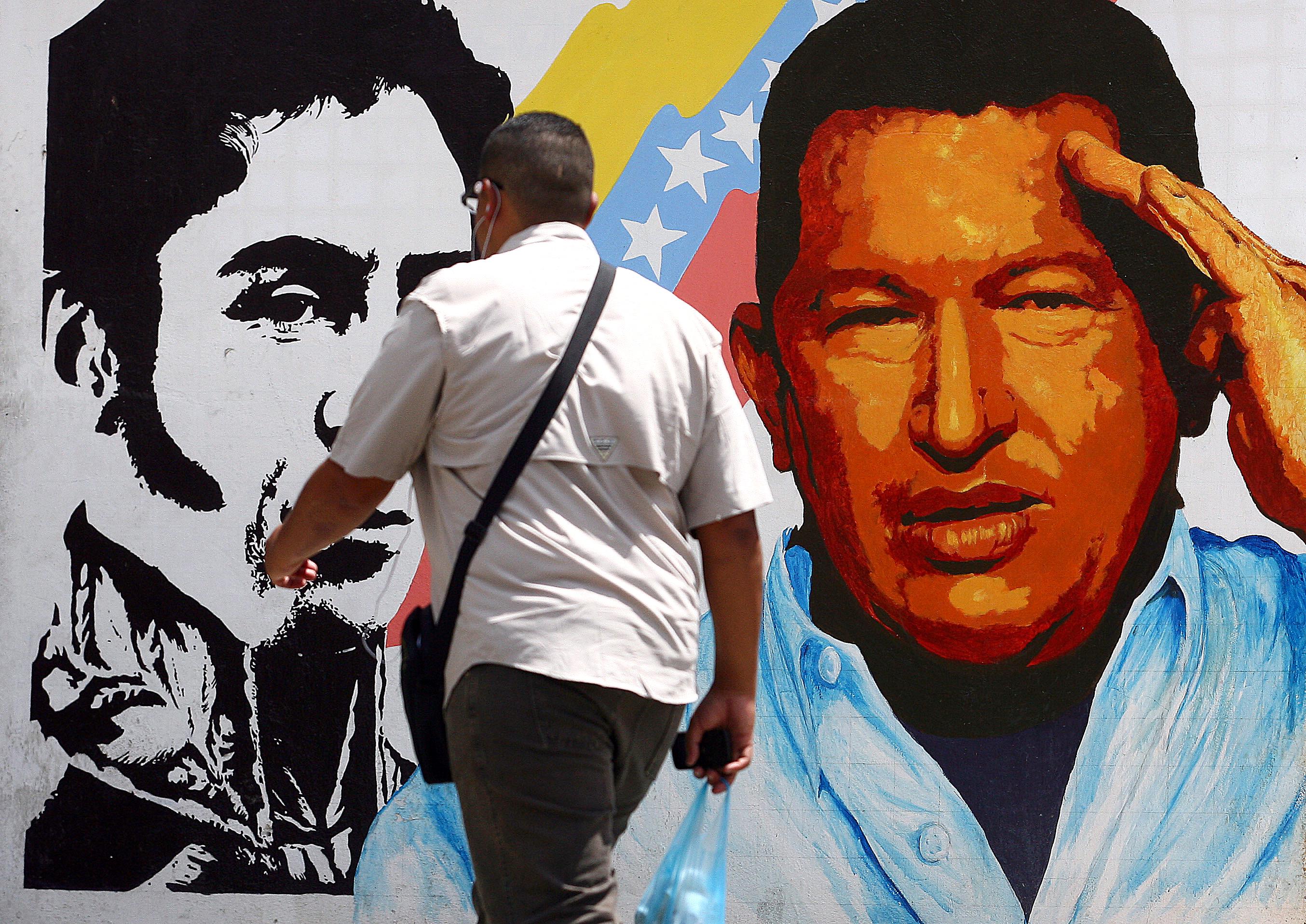Hugo Chávez, Venezuela’s flamboyant and charismatic socialist leader, is dead, the nation’s vice president, Nicolas Maduro, announced Tuesday. In a national broadcast, Maduro teared up as he broke the news, calling on Venezuelans to remain peaceful. “We must unite now more than ever,” he said. He did not specify when elections would be held to replace Chávez.
The announcement comes less than a day after Chavez’s communication minister made a somber television appearance last night to warn that the nation’s 58-year-old president was suffering from a new “severe infection” that had hindered his ongoing battle with cancer. The minister, Ernesto Villegas, said then that Chávez’s condition was “very delicate,” and that he was “standing by Christ and life, conscious of the difficulties he faces.”
Here’s the New York Times with the instant analysis:
Mr. Chávez’s departure from a country he dominated for 14 years casts into doubt the future of his socialist revolution. It not only alters the political balance in Venezuela, the fourth-largest foreign oil supplier to the United States, but also in Latin America, where Mr. Chávez led a group of nations intent on reducing American influence in the region. …
When a president dies, the Constitution says that the nation should “proceed to a new election” within 30 days, and that the vice president should take over in the meantime. The election is likely to pit Mr. Maduro, whom Mr. Chávez designated as his political successor, against Henrique Capriles Radonski, a young state governor who lost to Mr. Chávez in a presidential election in October.
But there has been heated debate in recent months over clashing interpretations of the constitution, in light of Mr. Chávez’s illness, and it is impossible to predict how the post-Chávez transition will proceed.
Chávez hadn’t been seen or heard from—with the sole exception of a few official photos released in the middle of last month—since he underwent his latest round of surgery in Cuba at the end of last year for an unspecified cancer in his pelvic area, according to Reuters.
News of Chávez’s death comes only hours after Maduro announced that the country would expel two American embassy officials, one of whom he accused of spying on the Venezuelan military and meeting with officers in an effort to destabilize the country.
The obituaries should begin rolling in shortly, but for now you should head on over to Foreign Policy to check out their piece from January on Chávez’s potential political afterlife. You can also read the late Christopher Hitchens’$2 2010 dispatch about what he learned of Chávez’s mental health when he visited Venezuela with Sean Penn.
This post has been updated with additional information and analysis.
